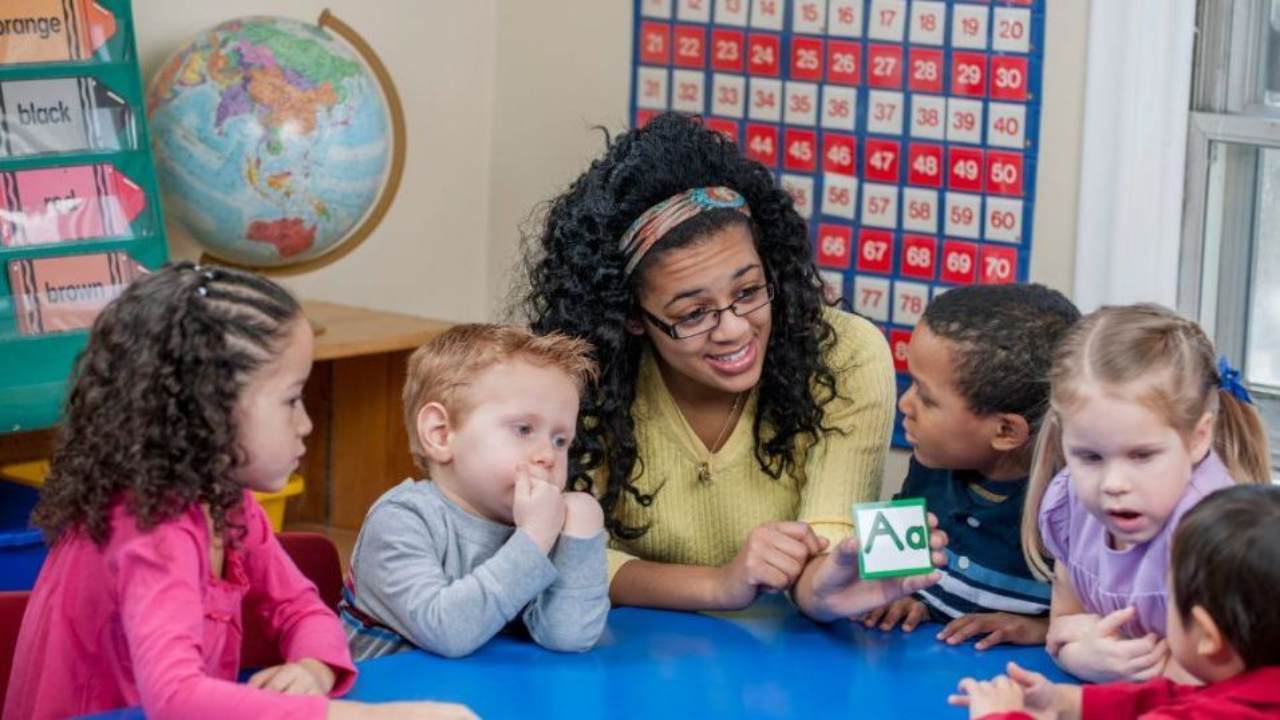The 5 Reasons Alphabet Learning is Crucial for Young Students
Jul 21, 2024
The Importance of Alphabet Learning for Young Students
As parents and educators, we often marvel at the rapid development of young children, especially during their early years. One of the most fundamental and impactful aspects of this development is alphabet learning. Understanding the alphabet is more than just memorizing letters; it lays the foundation for literacy, cognitive skills, and overall academic success. In this blog post, we will explore the importance of alphabet learning for young students and how alphabet learning centers play a crucial role in this process.
The Cornerstone of Literacy
Alphabet learning is the cornerstone of literacy. Recognizing and understanding letters is the first step toward reading and writing. By mastering the alphabet, children learn that letters represent sounds, and these sounds come together to form words. This knowledge is essential for decoding words, which is a critical skill for reading fluency and comprehension. Without a solid grasp of the alphabet, children may struggle with more advanced literacy skills later on.

Enhancing Language Development
Knowledge of the alphabet significantly contributes to language development. When children learn the alphabet, they gain an understanding of how letters and sounds work together to create words. This understanding is crucial for developing both speaking and listening skills. By practicing alphabet learning, children enhance their ability to communicate effectively, which is essential for social interactions and academic success.

Building Cognitive Skills
Alphabet learning also plays a vital role in developing cognitive skills. Learning letters and their corresponding sounds involves memory, attention, and pattern recognition. These cognitive abilities are not only important for literacy but also for problem-solving and critical thinking. Alphabet learning centers provide structured environments where children can engage in activities that stimulate these cognitive processes. Boom Cards make great centers and I love how you can differentiate so easily with them! Here is an example of a great independent alphabet center students love!
CLICK HERE to see more!
You can also get this deck in a discounted bundle with 6 other decks with alphabet activities. Make center time easy and fun for you and your students!
Boosting Confidence and Independence
Mastering the alphabet gives children a sense of achievement and boosts their confidence. When children can recognize and write letters, they feel more confident in their abilities to learn and explore new things. This confidence fosters independence, allowing them to take on more challenging tasks with enthusiasm. Alphabet learning centers often use interactive and engaging methods to make learning fun, further enhancing children’s confidence and motivation.

Preparing for Future Learning
A solid grasp of the alphabet sets the stage for future academic success. As children progress through their education, they will encounter more complex literacy tasks, such as spelling, grammar, and writing. Understanding the alphabet is a prerequisite for these advanced skills. Alphabet learning centers provide a structured and supportive environment where children can develop these foundational skills, ensuring they are well-prepared for future learning.
The Role of Alphabet Learning Centers
Alphabet learning centers are designed to provide children with targeted instruction and practice in letter recognition, phonics, and early literacy skills. These centers use a variety of interactive and engaging activities to make learning enjoyable and effective. By creating a stimulating learning environment, alphabet learning centers help children develop a strong foundation in literacy that will benefit them throughout their academic journey.
The process of learning letters can be daunting for some young children. Incorporating alphabet games into the learning process can make it more enjoyable and effective. Alphabet games turn learning into an enjoyable experience. When children are engaged and having fun, they are more likely to retain information and stay motivated. Games create a positive and dynamic learning environment where children are excited to participate and learn. Students can play alphabet hopscotch or Bingo. This set from Amazon also includes number bingo. Alphabet scavenger hunts are also fun. Put magnetic letters in some rice or sand and have students find certain letters or have them locate the correct matching capital and lowercase letters that go together. They can also find letters in books.
I love Scoot and so do the kids! We also use these task cards in centers with the alphabet letter manipulatives. There are cards in color and black and white. There are also a couple of differentiated worksheets to use for practice, morning work or assessments. I have also used these cards for a read around the room center.
Grab them while they are 50% in our store! This Scoot game is for capital letters and we will be adding the lowercase letters in just a few days, so stay tuned for that. They will also be 50% off for a limited time.

We also have these alphabet cards at our TPT store, so if you purchased them already be sure to download them again to get these new revisions.
In conclusion, alphabet learning is a critical component of early childhood education. It lays the foundation for literacy, enhances language development, builds cognitive skills, boosts confidence, and prepares children for future learning. Alphabet learning centers play a crucial role in providing the structured and supportive environment necessary for young students to succeed. By prioritizing alphabet learning, we can set our children on a path to lifelong learning and academic achievement.

